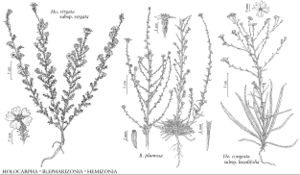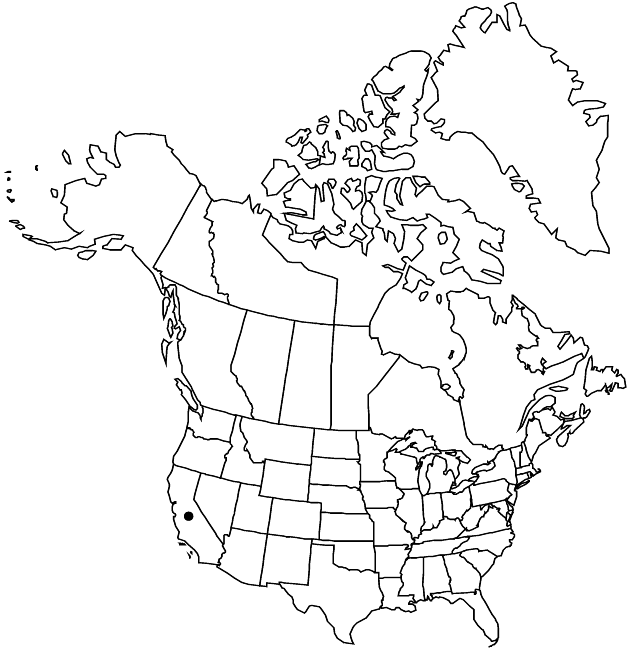Difference between revisions of "Blepharizonia plumosa"
Bull. Calif. Acad. Sci. 1: 279. 1885.
Basionym: Calycadenia plumosa Kellogg Proc. Calif. Acad. Sci. 5: 49. 1873
Synonyms: Hemizonia plumosa (Kellogg) A. Gray
FNA>Volume Importer |
FNA>Volume Importer |
||
| Line 7: | Line 7: | ||
|year=1885 | |year=1885 | ||
}} | }} | ||
| − | |basionyms={{Treatment/ID/ | + | |basionyms={{Treatment/ID/Basionym |
|name=Calycadenia plumosa | |name=Calycadenia plumosa | ||
|authority=Kellogg | |authority=Kellogg | ||
| + | |publication_title=Proc. Calif. Acad. Sci. | ||
| + | |publication_place=5: 49. 1873 | ||
}} | }} | ||
|synonyms={{Treatment/ID/Synonym | |synonyms={{Treatment/ID/Synonym | ||
| Line 54: | Line 56: | ||
|publication year=1885 | |publication year=1885 | ||
|special status= | |special status= | ||
| − | |source xml=https://jpend@bitbucket.org/aafc-mbb/fna-data-curation.git/src/ | + | |source xml=https://jpend@bitbucket.org/aafc-mbb/fna-data-curation.git/src/f6b125a955440c0872999024f038d74684f65921/coarse_grained_fna_xml/V19-20-21/V21_711.xml |
|tribe=Asteraceae tribe Heliantheae | |tribe=Asteraceae tribe Heliantheae | ||
|subtribe=Asteraceae (tribe Heliantheae) subtribe Madiinae | |subtribe=Asteraceae (tribe Heliantheae) subtribe Madiinae | ||
Revision as of 18:49, 24 September 2019
Herbage gray-green, sparsely, if at all, stipitate-glandular, usually with scattered tack-glands as well. Heads usually in spiciform-paniculiform arrays (branches often arched-ascending). Involu-cres usually ± canescent (sometimes also with scattered, longer, glandless hairs), usually with scattered tack-glands as well. Disc pappi 1.5–3 mm. 2n = 28.
Phenology: Flowering Jul–Nov.
Habitat: Dry slopes, in grasslands
Elevation: 0–500 m
Discussion
Of conservation concern.
Blepharizonia plumosa is found in the eastern San Francisco Bay area and northwestern San Joaquin Valley. Northern and southern populations appear to be evolutionarily divergent and may warrant treatment as distinct taxa (B. G. Baldwin et al. 2001).
Selected References
None.
Lower Taxa
None.

